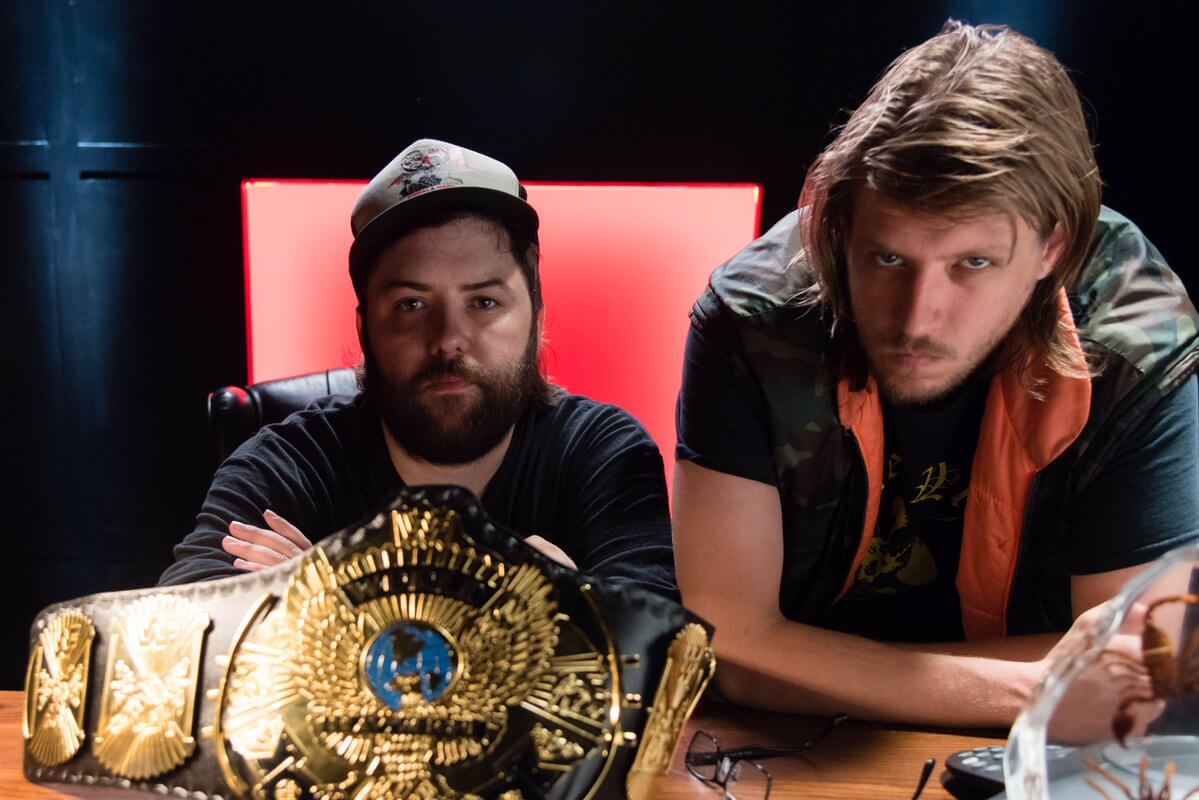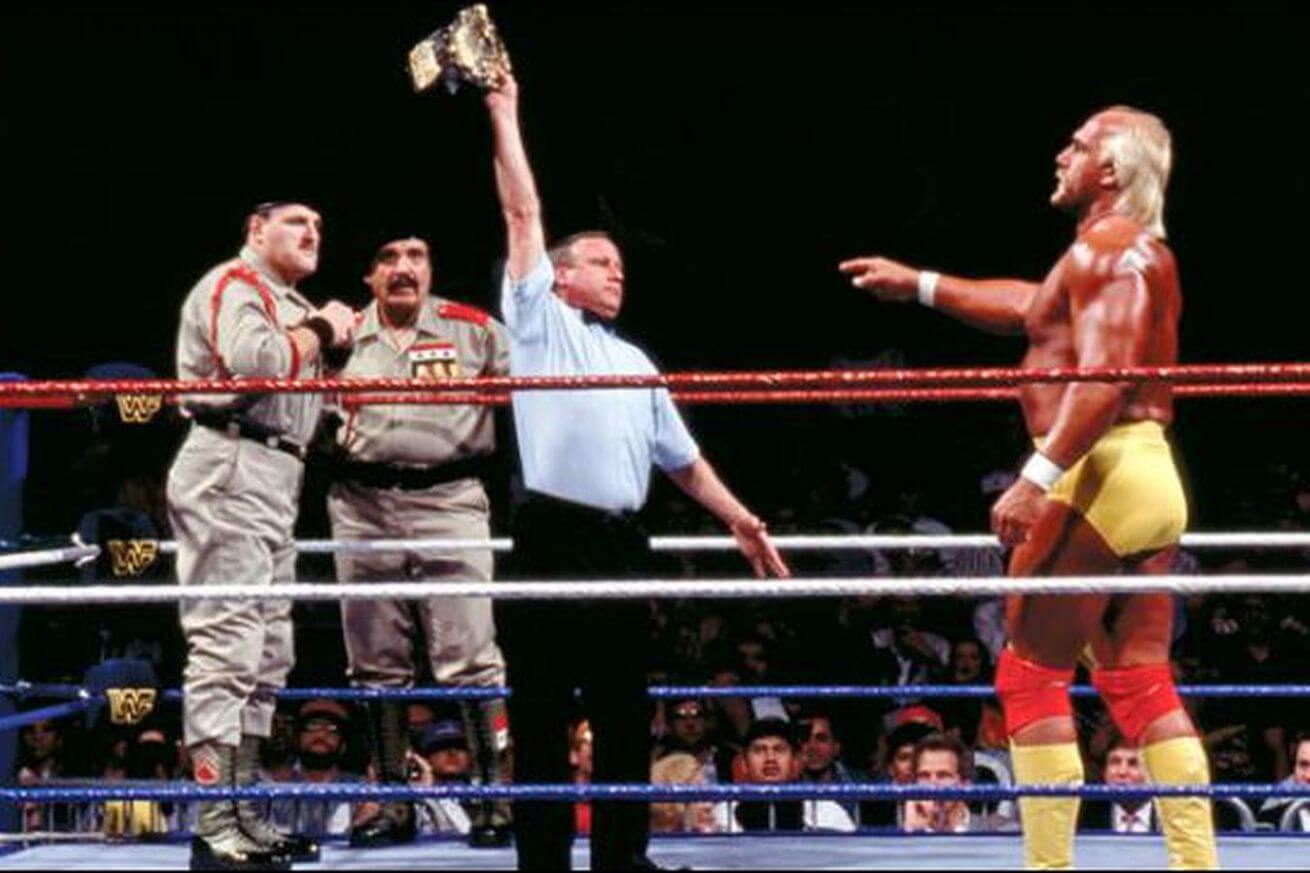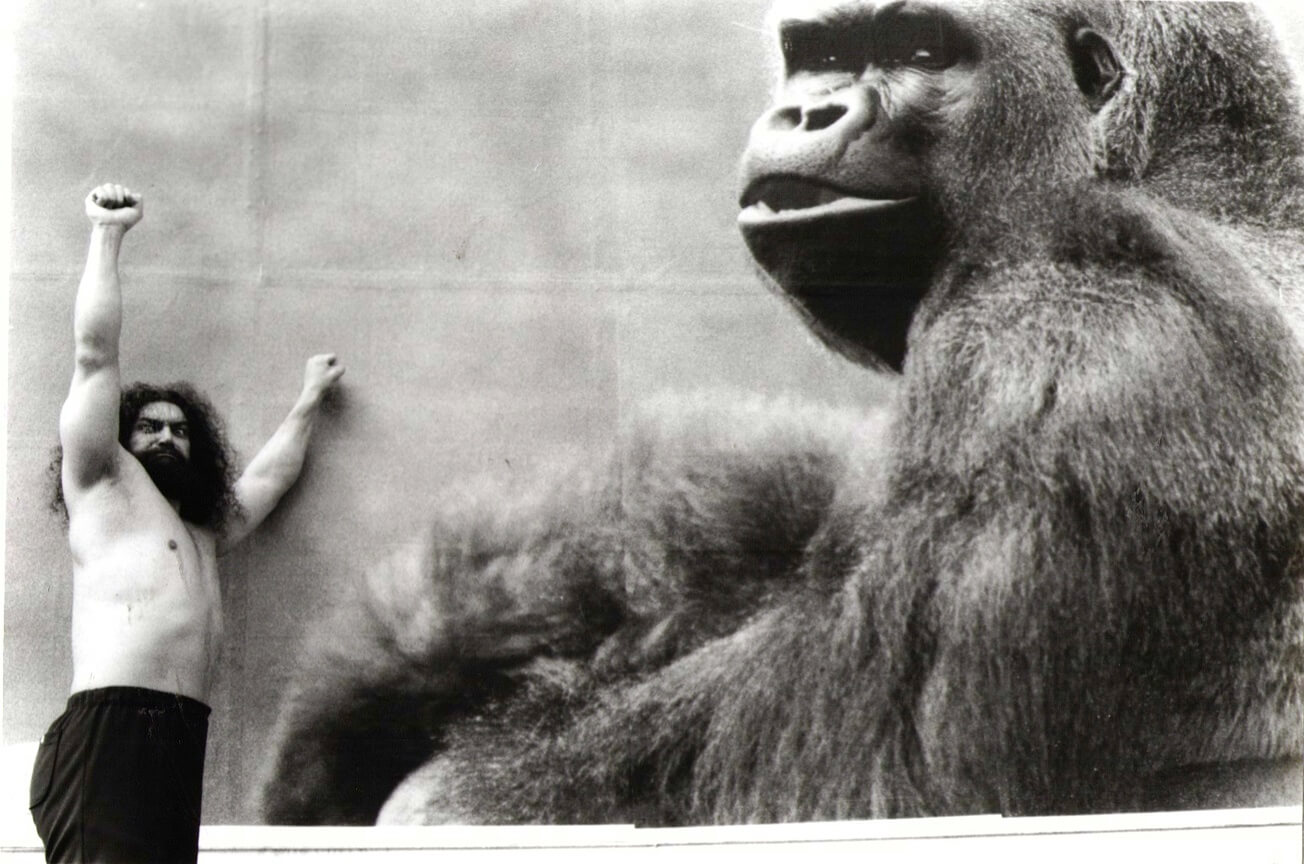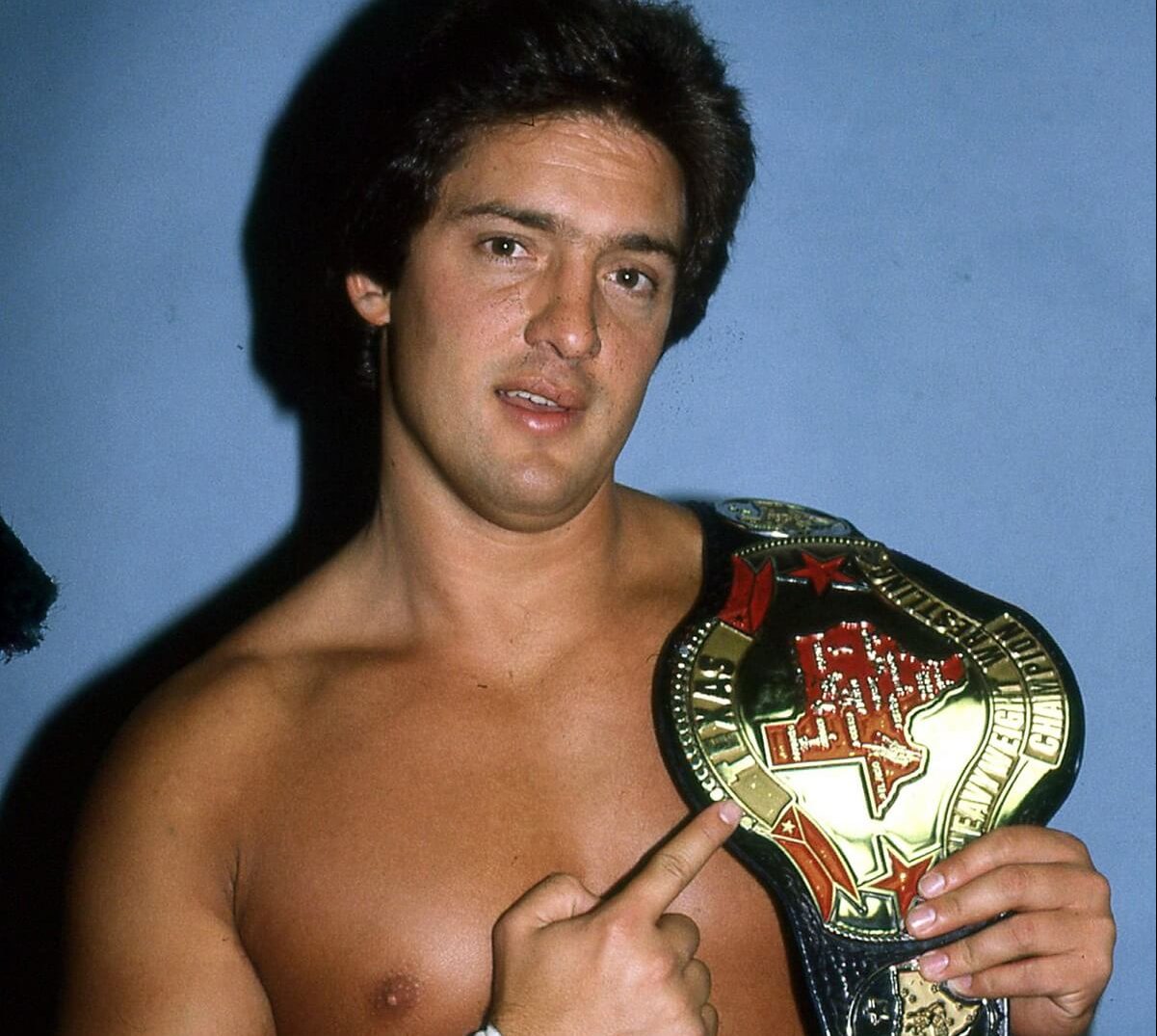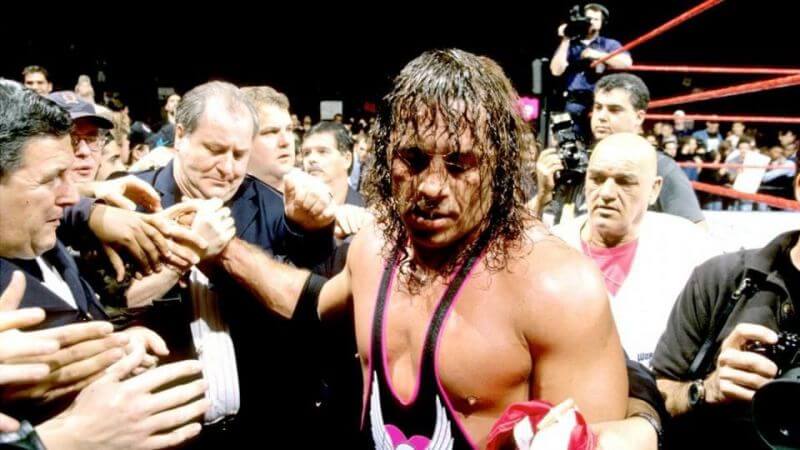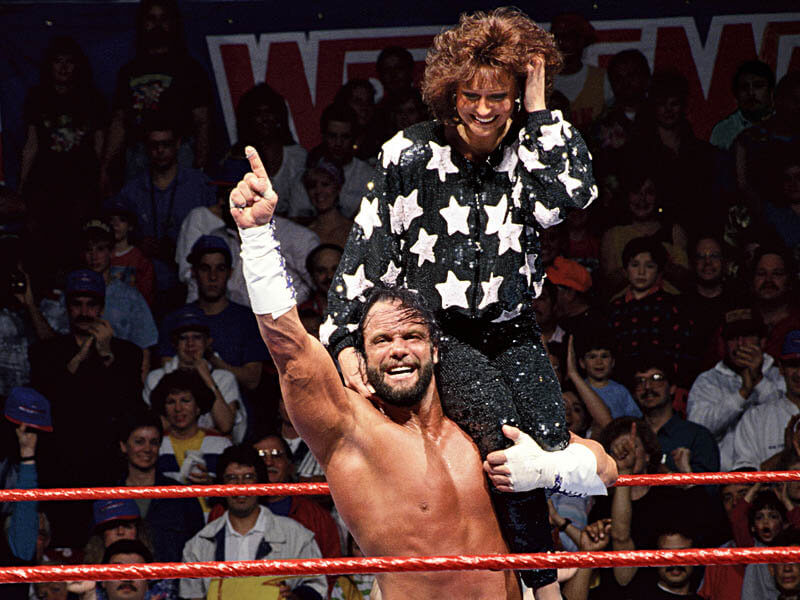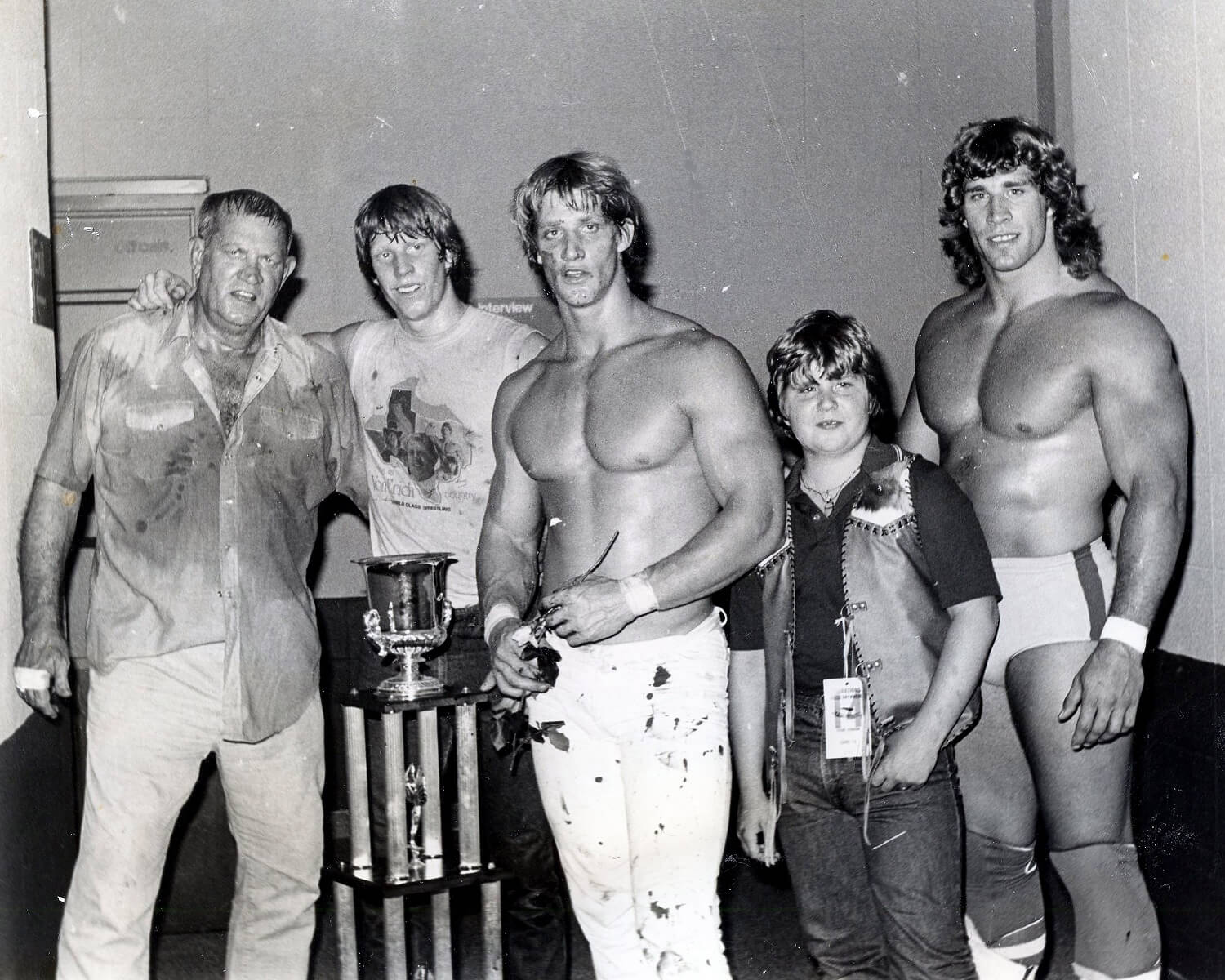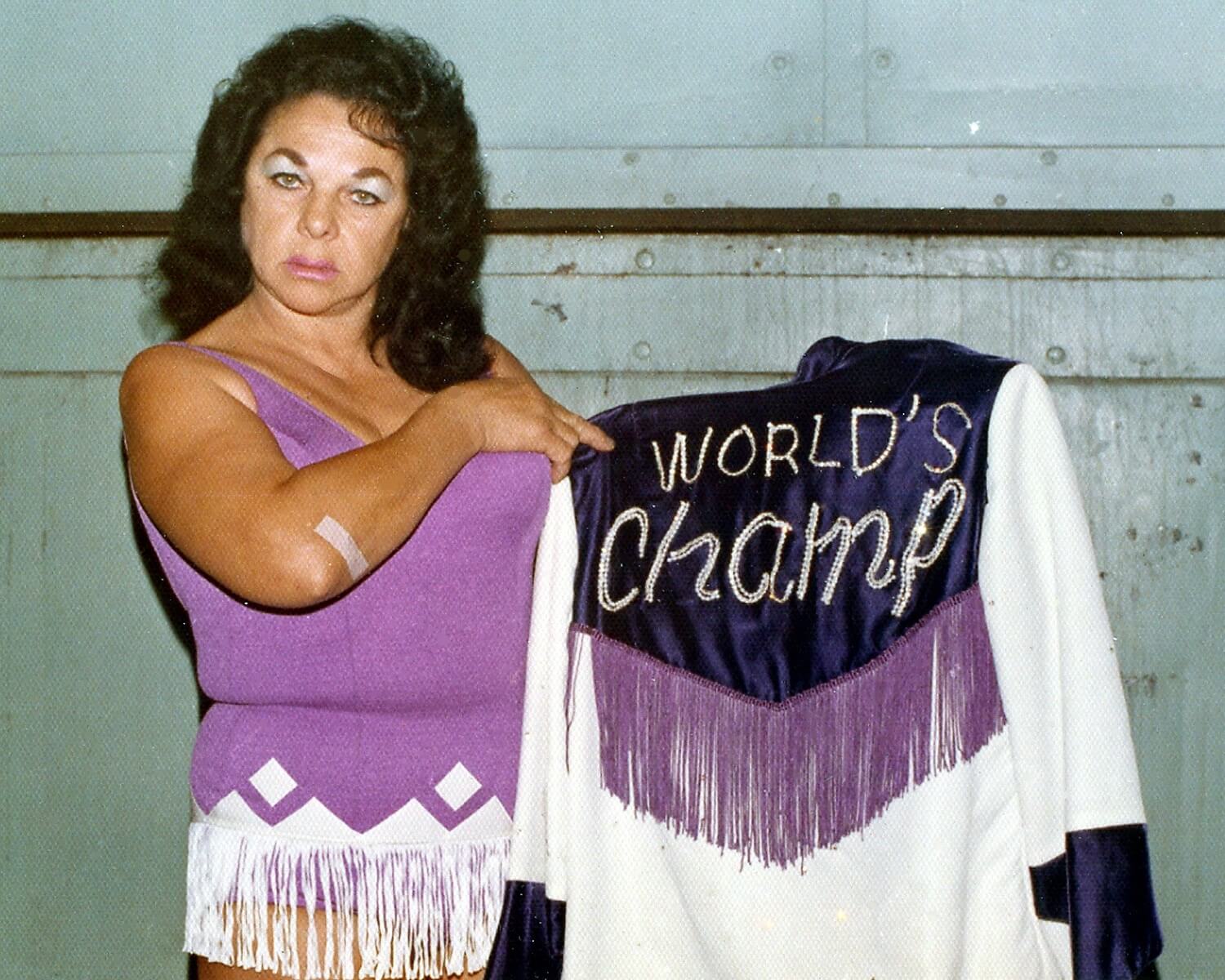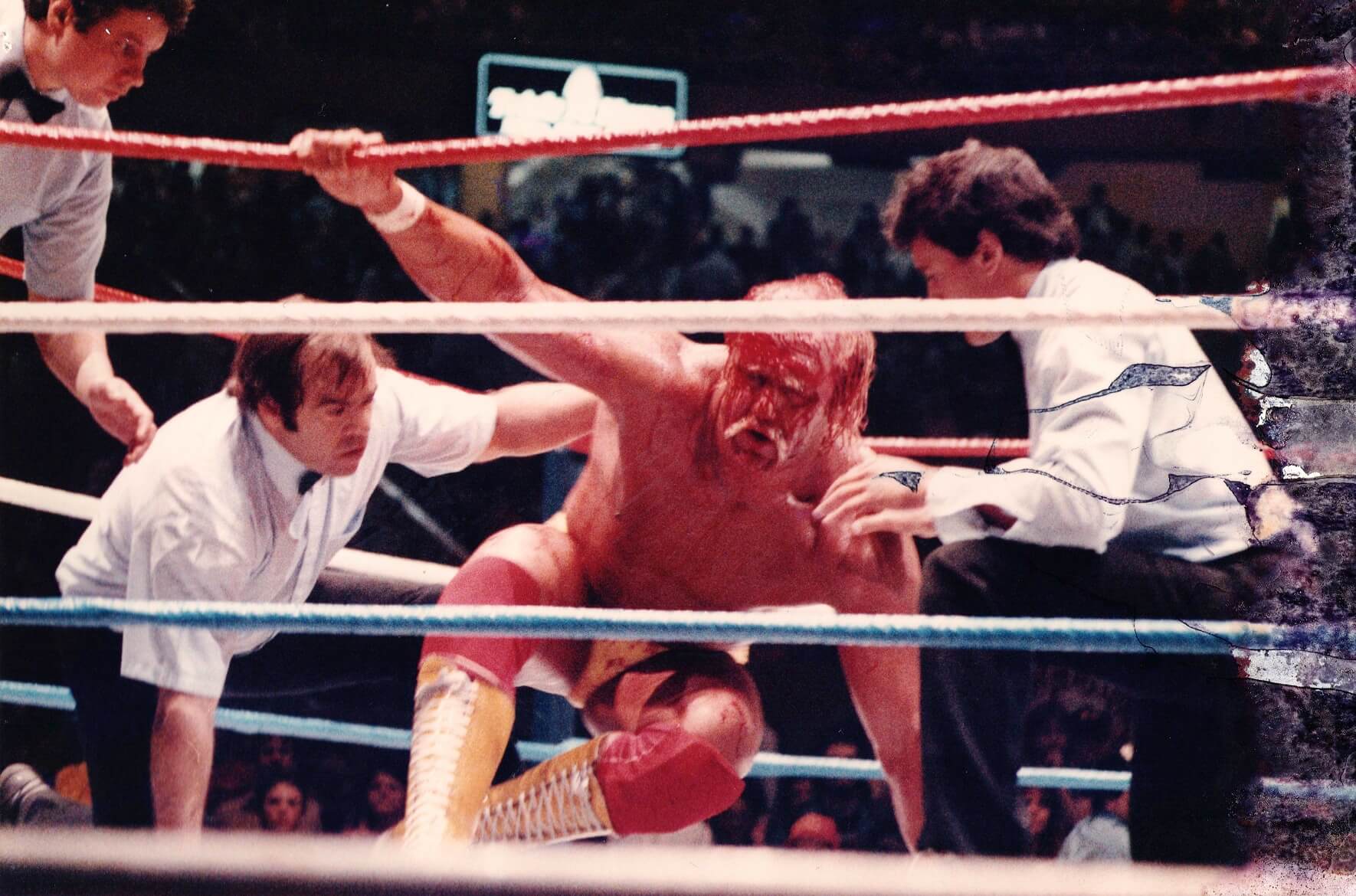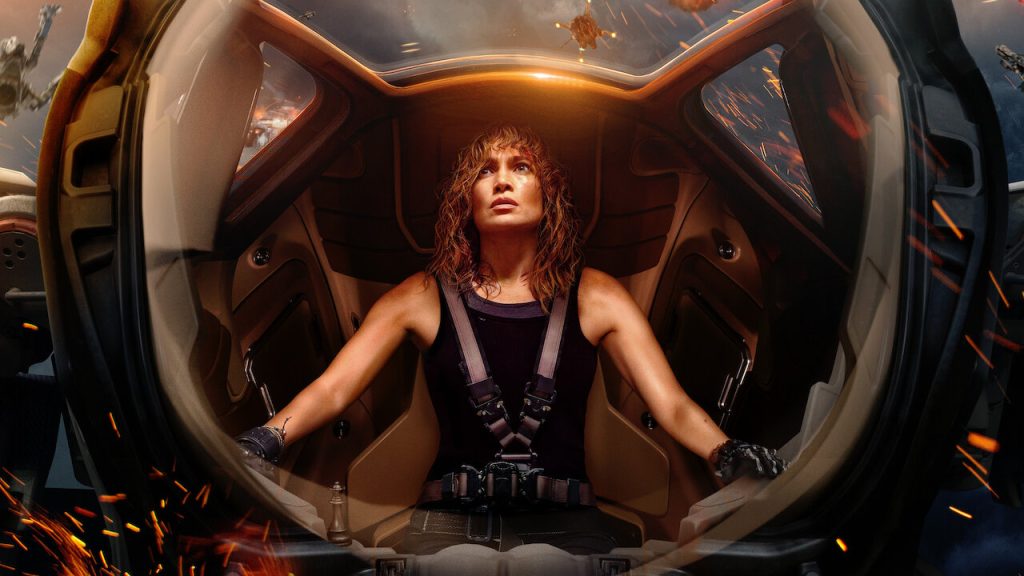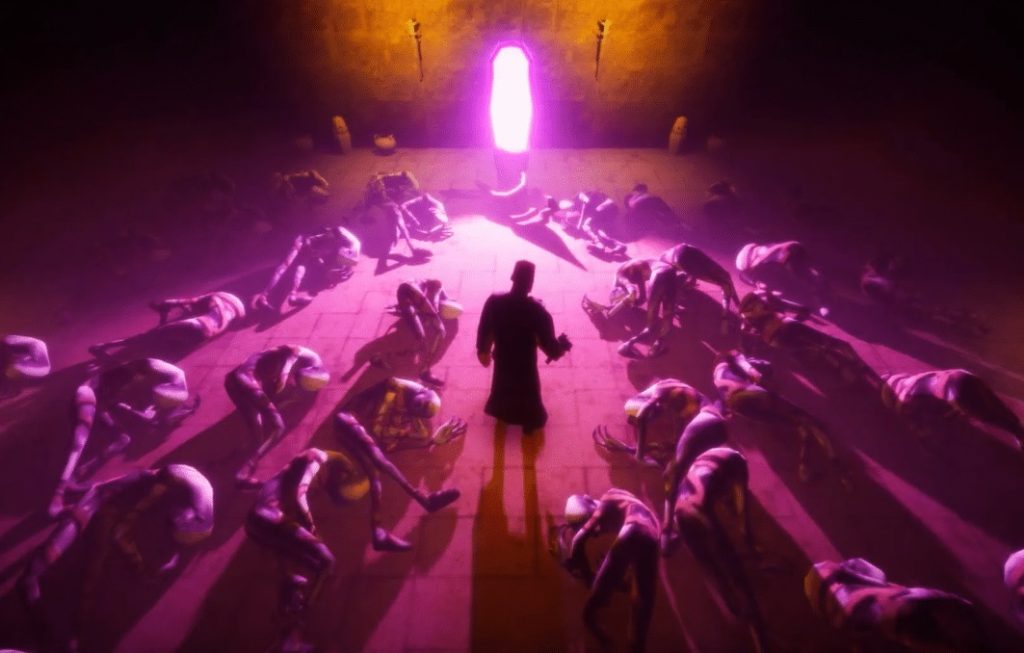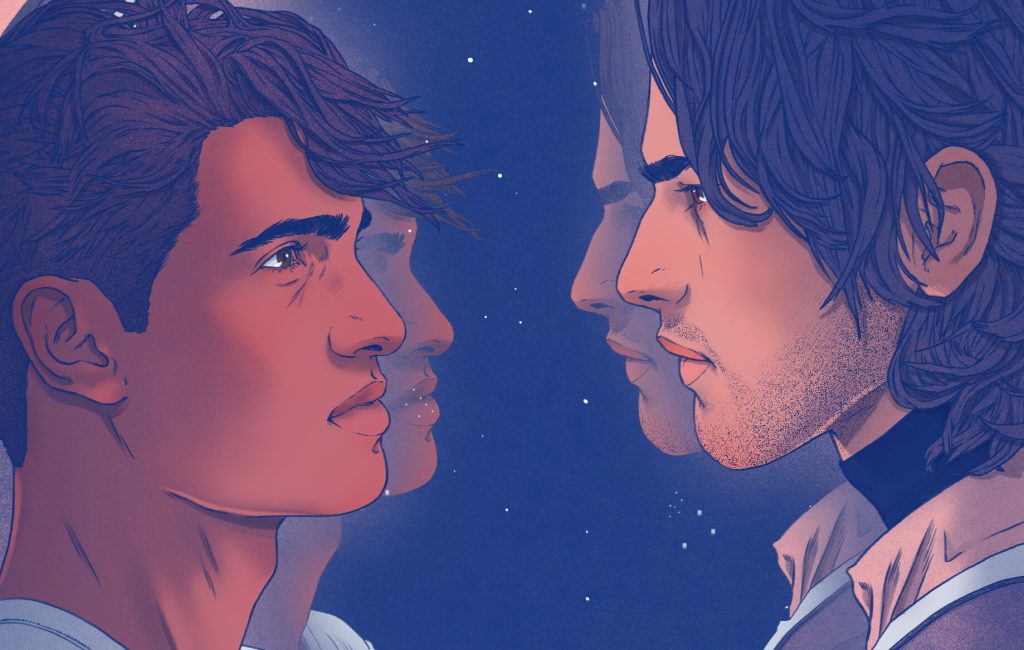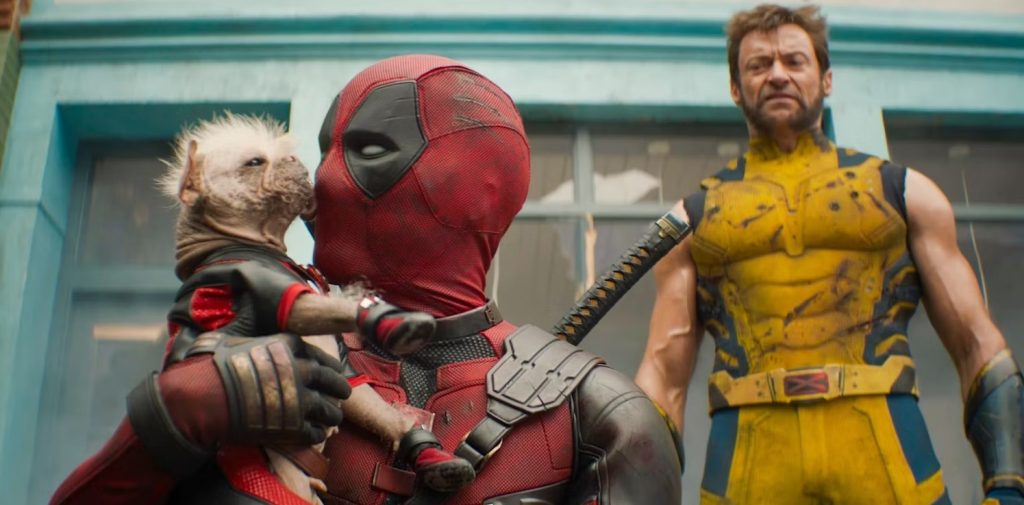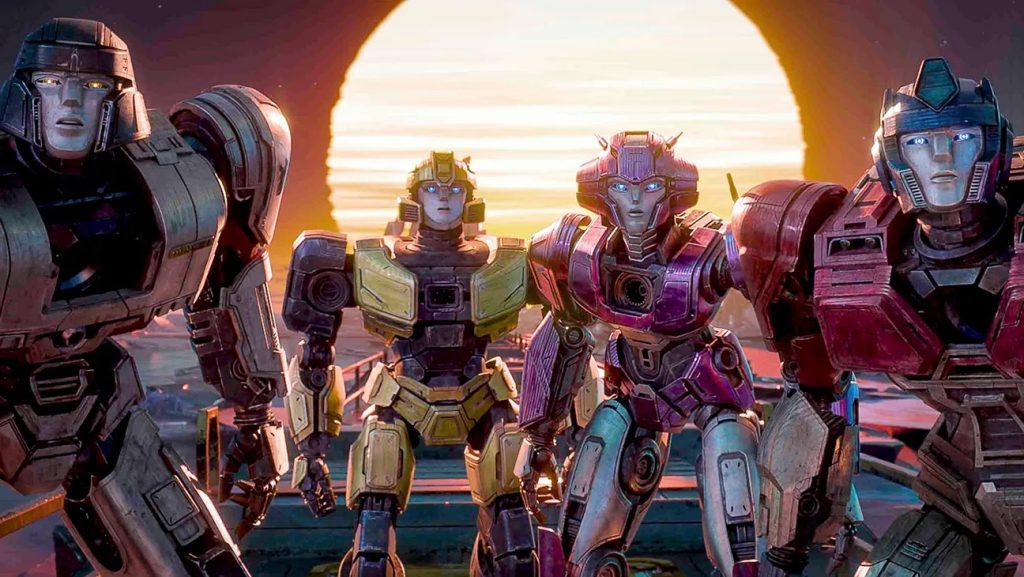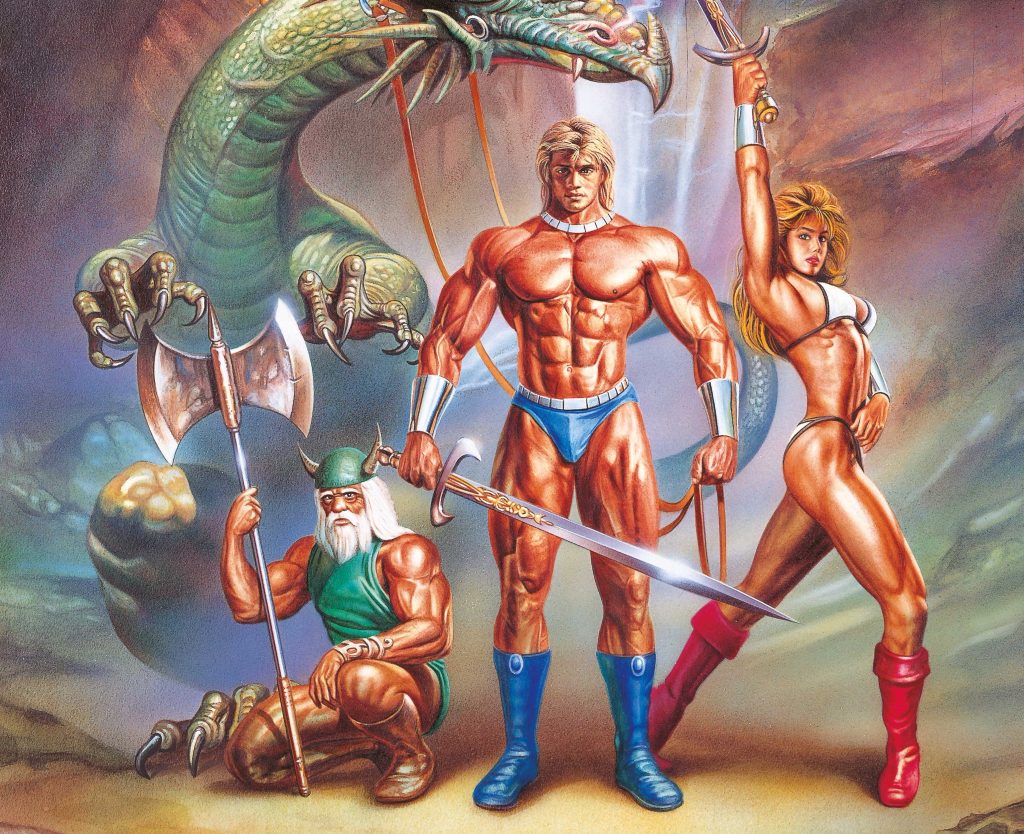Having won a whole host of plaudits and praise from North American audiences, Dark Side of the Ring has now launched in the UK on VICE. Taking a look at some of professional wrestling’s darkest moments and tragedies, the six-part documentary series is an absolutely fascinating watch for both wrestling fans and non-wrestling fans alike. We were lucky enough to grab some time with director Jason Eisener and producer Evan Husney to discuss being wrestling fans, the real-life shocking incidents behind the curtain of the wrestling industry, how they handled having those involved in those moments revisit such tragedies, potential topics for a second season of the show, and a whole lot more.
STARBURST: Starting with the obvious question then, were you both wrestling fans growing up? And if so, when did you become a fan and who were your favourites back then?
Jason: Both Evan and I, we grew up as major wrestling fans. My very first wrestling show was really impactful for me. I went to a WWF Superstars show and I was probably 10 or 12 years old. I had a spot right next to the guardrail, where the wrestlers come out for their entrance. While I was sitting there, there was this wrestler named Skinner who was like a Southern outback sort of wrestler. I leaned over the rail and me and my cousin were screaming at him, “You suck! You suck!” He came over and locked eyes on us, then grabbed me by the collar of my shirt and pulled me up over the guardrail. Me and my cousin. He pulled us in to his face and I could smell his breath – he had this chewing tobacco – and he was all, “I’m gonna skin you!” I was so terrified. It left such a huge mark on me. I was, at that time, already a full-blown believer in the wrestling world, but that kept me as a believer all the way up until this day.
Evan: I had an opposite experience. My first wrestling match was a WrestleMania house show in, I think, 1991. It was during the Hulk Hogan/Sgt. Slaughter conflict. I had come in to wrestling as a big G.I. Joe fan and so I was, “Oh, I get to see Sgt. Slaughter live in person!” Much to my horror, I didn’t understand at the time – I didn’t know who Saddam Hussein was – that he [Slaughter] was this Iraqi sympathiser character. My parents were aghast that I’m cheering for Sgt. Slaughter. The only kid in the auditorium who was, “Who’s this bald guy with the blond skullet who’s attacking my American hero?”. I was crying. My parents were so embarrassed that I might not be altogether there. That was where my love for it started, and then it was literally opening up a Big Boss Man action figure and playing with it for a decade. After that, it was getting in to the Attitude Era. It’s always been a part of my life.
When you first decided to do Dark Side of the Ring, what was your initial aim for the series?
Evan: So Jason and I have been best friends for a long time. We both met in our filmmaking circle and we quickly discovered that we had a lot in common. Our childhoods were very similar; the movies, the action figures, wrestling and all that stuff. Jason’s a film director and he had done several different projects, and I’d been a staff employee at VICE for several years making various documentaries for online. We both kind of got in to wrestling again as lapsed fans. We got back in to it in a big way. As our fandom started with Skinner, there’s a lot of blind spots there in terms of the territory era, what happened before, Japan in the ‘80s. Thanks to the internet, a lot of that stuff people have got obsessed with in the last several years.
One of the things that caught our attention immediately was the Bruiser Brody story; Bruiser Brody as this mythological, incredible, unbelievable personality in wrestling, but also us being moved and outraged by his final days. We just were perplexed. If that story happens in today’s wrestling environment, it would be front-page news everywhere. The fact that it’s sort of been forgotten for several decades, it felt like it was right for a re-examination. That was the jumping-off point. Here’s this story, how do we do it? It was really when VICE the TV channel started up, it seemed like a fit for us to do the documentary for the channel. Then that sort of grew and grew – what other stories deserve a similar treatment? That was the genesis. We did the Bruiser Brody episode as sort of the ‘proof of concept’ pilot, and that allowed us to make a full series last year.
Photo credit: Barbara Goodish
People like Lanny Poffo and Kevin Von Erich have previously spoken publicly about their own personal losses, but you then have Gino Hernandez and Bruiser Brody’s families who are not used to being in the spotlight. How was it to approach those families and assure them that you were being respectful and not exploitative?
Evan: It’s very tricky. You have to approach it very delicately because you don’t want to appear as being too much of a wrestling fan; someone who may or may not grasp the gravity of the situation that you’re dealing with, dealing with someone’s loss of a loved one. That transcends the importance of wrestling. It’s just a process of getting to really know those people and to give them the proper amount of time and respect, to earn that trust. In several cases, Gino’s family being the prime example, it was literally about going out to meet with them in person without cameras and just trying to get to know one another so they could understand where we’re coming from and how we have their best interests in mind; we really want to tell their story and just hope that they trust us. That was part of the thing. It’s just a process and getting to know somebody on a personal level so that they understand that your intentions are genuine. Where a lot of other programmes did it, it might just be the sensational stories. Here, it couldn’t be further than that. These are powerful stories that might help somebody else in their own situation, or it might help people see wrestling in a different way.
Jason: With the Von Erich story, I think that was a big part of why Kevin wanted to tell his story. They can be something that other people can learn from or find inspiration in. When you hear what he and his family have gone through, if he could make it out the other side, I think that that can be really helpful for other people who may be struggling with life. He’s been getting that a lot – you see on Twitter there’s a lot of people reaching out to him and thanking him for being so open about his story. People have been finding it really helpful.
Photo credit: Buddy Myers
For some of the six stories told in the first season, wrestling fans may already be well familiar with them. How did you approach these tales in a way that made them feel fresh or to give people something they haven’t heard before? For instance, Jim Cornette revealed a major new twist to the Montreal Screwjob.
Evan: That’s a good question.
Jason: We do so much research. We’ve seen every wrestling documentary that you could find, pretty much. We really want to tell these stories in a way that they have never been told before. We’ve been watching every shoot interview, every wrestling documentary, to try and navigate our way to tell these stories in a way that people haven’t heard before. But we also wanted to bring a very cinematic quality to it, and we wanted to make the episodes in a way so that non-wrestling fans could get introduced to the world and understand what was going on. Our biggest goal was to make the most hardcore wrestling fans respect what we’d done, but to also make somebody who doesn’t know anything about the wrestling world be able to see the episodes and see why it is that we love and respect this business so much. Our favourite comments about the show have been from other wrestling fans who said they’ve shown it to a loved one or friend who isn’t a wrestling fan, then it’s got them interested in the wrestling business. That’s probably the coolest thing.
Evan: I think of Montreal specifically. I think the purpose that the episode served it was, like Jason was saying, we wanted to make the show for a non-wrestling audience. Talking about the one big 30 for 30 moment in wrestling where everything changed – where people started to get more interested in the behind the scenes rather than what was happening in the ring – you can’t look any further than the Montreal Screwjob. I think the episode for people who aren’t as familiar as wrestling as the three of us, that episode really is the perfect primer in terms of understanding how the behind the scenes works and how it functions and what it means to be a champion. It really establishes those things for an audience going forward to see the other stories that are going to unfold as the season goes on. I think that was the main reason for doing this in the beginning. But we had no idea that Cornette was going to give us that piece of information, and how awesome was that?
You talked about wanting to make these stories cinematic, and the interviews featured in Dark Side of the Ring are interspersed with well-produced re-enactments featuring lookalikes. How tricky was it to find so many lookalikes for the fill-in scenes?
Jason: We ran the production out of Toronto, out of the VICE Toronto office. Just down the street from the VICE Toronto office was a wrestling school and a local wrestling promotion called Superkick’d. They had a lot of performers that we were able to use. We teamed up with them, they let us use their ring and use a lot of their talent, but then we also went to bodybuilder groups, we scoured Instagram for different gyms in Toronto looking for big guys, and then just local casting agencies too. We were lucky enough to find some wrestlers who had gimmicks that were very similar to our performers. So we had a fella from Montreal whose gimmick was very close to Abdullah the Butcher, and we had another wrestler whose gimmick was really close to Bruiser Brody. They already had the research done for the characters, they had been studying these wrestlers for their entire lives, so it was easy for them to step in and assume those roles.
In additions to interviews and recreations, you also have a lot of footage of these real-life wrestlers in action. Given how a lot of what you’re discussing in each episode is potentially detrimental to some of the companies involved, how did you manage to get the rights to that footage?
Evan: There are a lot of limitations in terms of the archival that’s going to be available to you to tell the story. You have to lean on the people who were there to tell these stories. That’s the way we’ve always approached these stories from the beginning. That being said, that was really the emphasis that inspired the idea of doing the re-enactments in the first place – to help bolster the story, visually. We had to come up with an interesting way to transport viewers in to the minds of the interview subjects and the memories they have, but also to be able to bring a visualisation to the moments that weren’t in the archives; the stuff that happened in the locker rooms, the stuff happening on the road, the stuff happening in hotels. That was really the reason why we wanted to do dramatic re-enactments., and because Jason and I are huge fans of Errol Morris and his film The Thin Blue Line. We really just wanted to make the Thin Blue Line version of wrestling.
Jason: Very true.
Off the people who are still alive, you managed to get input from the majority of the key players in each of these stories. Was there anybody you reached out to who either you couldn’t get hold of or they just flat-out refused?
Evan: I wouldn’t say every episode, but the majority of them maybe had one or two people that we tried to get but we were unsuccessful. One that comes to mind is Shawn Michaels for the Screwjob. We were kind of surprised, but he felt he’d said his piece on it already, and that’s fair. As you know in the Bruiser Brody episode, we mention the people that didn’t want to participate. And I think Lex Luger was one who turned us down for the Macho Man episode, which was surprising to us only in that one of the major reasons that we wanted to include his side of the story is because we were so moved by a lot of his interviews about that. He’s been able to take what’s happened to him and turn it into an experience to help others. We thought it was very inspiring and thought that was such a no-brainer for our episode in the way that we would treat it. Unfortunately, he didn’t want to be a part of it. So we had to build by the fact that we did have that story on Eric Bischoff’s podcast, and we wanted to include that because it’s very important to hear his [Luger’s] perspective.
As wrestling fans, do you remember what the first real-life shocking incident you heard about was?
Jason: I didn’t hear about the Bruiser Brody murder when I was a kid, but I definitely remember people on the schoolyard talking about the Montreal Screwjob. Being from Canada myself, and Bret Hart being just as big or bigger than Wayne Gretsky, that was a really big deal for all the Canadian kids. So that was the first time I remember. When Bret started going to the press after the Montreal Screwjob had taken place, even as a kid we thought that that was crazy. To hear that Vince McMahon, that they were admitting that they were openly talking about scripting finishes for matches, I remember that being a real shocker as a kid.
Evan: For me, it’s more recent, but I definitely remember where I was standing when I heard that Randy Savage had passed away. That was a huge one for me, because he’s always to this day been my number one in terms of who I believe is the quintessential wrestler. I remember exactly when that happened, and that one probably more-so than several others was a huge emotional loss for me. I was distraught for days after that.
Photo credit: George Napolitano
Sadly, the wrestling business is one filled with more than its fair share of tragedies, particularly with names such as Chris Benoit, Jimmy Snuka and Nancy Argentino, Dino Bravo, Adrian Adonis, Joanie Laurer and countless others. If a second season of Dark Side of the Ring is ordered, are there any particular stories that stand out to you as needing to be told?
Evan: There’s several stories. We’re still waiting to hear if we’re officially going to be renewed for another season, but if we are then unfortunately there are several, several stories that you could cover going forward. Several of them, it’s just about finding the right access, making sure you can get the right people who were there with first-hand information for these stories so that it’s not exploitive and it’s not so much of an exposé. We want it to be authentic, truthful and genuine with the stories that we tell. We were supposed to have a larger Season 1 than originally planned – it was supposed to be eight episodes, so we had to stop working and pause on two different ones – and one of them was the Dino Bravo story. That one we did a considerable amount of work on already; we’ve done several interviews and had several edits of it. We didn’t do the re-enactments yet, but we got pretty far in that story. For that one, for us, as far as looking forward, it’s really wanting to finish that. That’s always been the goal, because we did so much work on it. That one definitely is pretty eye-opening.
Photo credit: Chris Swisher
It’s to your credit that you don’t particularly drive the narrative of these stories in any specific direction. Instead, you allow input from all sides and let the audience make up their own mind. As filmmakers, how hard is it to not skew in a certain direction, such as in the case of the Fabulous Moolah episode?
Jason: In terms of the Moolah story, it is difficult to navigate what really happened. Moolah’s no longer around to speak for herself, but there are women who were really close to her who worked with her and trained with her, and so we thought it was important to hear all sides of the story and give an opportunity to the people who are down to talk to us to tell us their truth. In a lot of ways, we wanted to present both sides of the story but allow for the audience to form their own opinion on how they feel about the subject.
Evan: Since this show was literally inspired by a lot of the wrestling shoot interviews that are on YouTube, you always get such partially contrasting viewpoints from a lot of wrestlers – whether they were part of the story or not! Conspiracy and rumour are always something that’s so common in interviews with wrestlers, and so we really wanted to always show that because that in and of itself is something pretty singular to people in wrestling. A lot of these stories that we’re talking about, especially Moolah, a story that goes back 50+ years, it just shows the grey area that wrestling history really is. I think with the Moolah story specifically, what we wanted to do was show that there are two sides to the story and leave it for viewers to come up with their own thoughts, but also to show that it’s very complicated. It’s not as binary as black and white in terms of someone’s history and legacy.
Jason: Especially in the wrestling world. Someone like Moolah, you look at any of her interviews and she protected the business. She’s in character in a lot of her interviews. For someone today, if they heard the allegations about Moolah and wanted to see what this person’s like, you look at her interviews and she comes across as a heel-ish person because she’s playing the character in all of her interviews. In a lot of ways that is the thesis of the whole series. Trying to find the truth in the world of wrestling is really difficult because, unlike any other sport or any other artform, it calls for its performers to protect the mystique of wrestling. Even someone like Bruiser Brody, you can’t really find any interviews with him out of character. He did such an incredible job of protecting his character and living his character in all of his public life. But that’s what we find so fascinating and that’s what we love so much. We really love that time period in which wrestlers had to go to great lengths to protect the business and protect their characters. You can’t find that in any other sport, you can’t find that in any other artform, and that’s really what makes wrestling really special.
Photo credit: Linda Bollea
One major name who wasn’t involved in the series was Hulk Hogan, who has since taken to social media claiming that he wasn’t asked to partake in Dark Side of the Ring. Personally speaking, from seeing so many Hogan interviews over the years, you always have to take what he says with a large pinch of salt, and him being involved may have actually taken away some of the credibility of the show…
Jason: We did reach out to Hulk Hogan. Partially I would agree with you, but I would love to have gotten him in our seat and I would’ve loved for us to have been able to talk to him. I think we could get a side of Hogan that people haven’t seen before. If that opportunity ever came up, I think we could get something special out of Hogan.
Moving forward, are there are wrestling stories that would be deemed off-limits for you or is everything fair game to be put in a public forum?
Evan: I think anything’s fair game, but I do think that it largely depends on getting the right people to talk about it. There are some stories where I think we definitely wouldn’t do them just to do them. I think it largely comes down to getting the right family members, the right people who were there, and that the story is there. It really comes down to that. For any story, we would have to treat it with the most respect and it’s also not about necessarily us pointing fingers. We really want to be telling our story in the most human way possible. This is all about humanity, it’s about the lives that these people led, and I think the more that people are open about certain things, no matter how dark they are, I think it’s good to talk about them. I think that’s the way that we would try to handle stories that are of a more difficult nature.
Dark Side of the Ring airs every Wednesday at 10pm on VICE UK.

